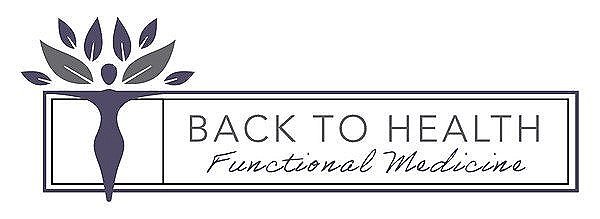Understanding Hypothyroidism & Hashimoto’s: A Holistic Functional Medicine Approach
Are you constantly tired, struggling to lose weight, or dealing with brain fog and mood swings? Have you been told your thyroid labs are “normal,” yet you still feel awful?
You’re not alone.
Millions of women experience symptoms of hypothyroidism, often due to an underlying autoimmune condition called Hashimoto’s thyroiditis—but conventional medicine frequently overlooks the root causes.
Holistic functional medicine takes a different approach, focusing on why your thyroid is struggling instead of just prescribing medication to replace hormones.
In this blog, we’ll dive into:
- The difference between hypothyroidism and Hashimoto’s
- Common root causes of thyroid dysfunction
- Why standard lab tests often miss the problem
- How functional medicine helps restore balance naturally
Let’s uncover the missing pieces so you can take control of your thyroid health and feel like yourself again!
---
What is Hypothyroidism?
Hypothyroidism is when your thyroid gland doesn’t produce enough thyroid hormones, leading to:
✅ Fatigue
✅ Weight gain
✅ Brain fog
✅ Depression
✅ Constipation
✅ Hair thinning
✅ Dry skin
✅ Cold intolerance
Thyroid hormones regulate metabolism, energy levels, and even digestion, so when they’re low, your whole body slows down.
What About Hashimoto’s?
Hashimoto’s thyroiditis is the most common cause of hypothyroidism. It’s an autoimmune condition, meaning your immune system mistakenly attacks your thyroid. Over time, this chronic inflammation damages the gland, reducing hormone production and leading to symptoms of hypothyroidism.
Key Difference:
- Hypothyroidism = Low thyroid hormone levels
- Hashimoto’s = An autoimmune disease that triggers hypothyroidism
The problem? Standard medical care treats Hashimoto’s the same as regular hypothyroidism—ignoring the immune system’s (as well as nervous system, traumas, infections, food adverse reactions, and many other triggers) in the disease pathogensis.
---
Why Conventional Medicine Falls Short
Most doctors rely on a single test: TSH (Thyroid-Stimulating Hormone) to diagnose hypothyroidism. But this test doesn’t show the whole picture.
What’s Missing?
✔ Full Thyroid Panel – To assess hormone levels properly, you need:
- Free T3 & Free T4 (Active hormones)
- Reverse T3 (Can block active hormones)
- Thyroid antibodies (Detects Hashimoto’s)
✔ Root Cause Investigation – Instead of just replacing hormones with medication, we need to ask: Why is the thyroid struggling in the first place?
---
The Holistic Functional Medicine Approach to Thyroid Health
Holistic functional medicine aims to find and fix the underlying causes of hypothyroidism, instead of just masking symptoms.
Here’s how:
1. Identifying Root Causes
Common triggers (there are more…) for Hashimoto’s and thyroid dysfunction include:
🔹 Gut Imbalances – 80% of your immune system is in your gut! Leaky gut and dysbiosis can trigger autoimmunity.
🔹 Nutrient Deficiencies – Low iodine, selenium, zinc, or vitamin D can impair thyroid function.
🔹 Chronic Stress – High cortisol can suppress thyroid hormone production.
🔹 Toxins & Heavy Metals – Endocrine disruptors like fluoride, pesticides, and plastics interfere with thyroid health.
🔹 Food Sensitivities – Gluten and dairy can worsen inflammation in those with Hashimoto’s.
🔹 Infections – Viruses like Epstein-Barr (mono) have been linked to Hashimoto’s.
2. Restoring Balance Naturally
Functional medicine uses a holistic approach to support thyroid function:
✅ Anti-Inflammatory Diet – Remove gluten, dairy, processed foods, and sugar. Focus on whole, nutrient-dense foods.
✅ Gut Healing – Add probiotics, bone broth, and digestive support.
✅ Stress Reduction – Implement meditation, breathwork, and better sleep hygiene.
✅ Toxin Elimination – Switch to non-toxic personal care and household products.
✅ Targeted Supplementation – Support with selenium, magnesium, omega-3s, and vitamin D.
---
Action Steps: What You Can Do Today
📌 Step 1: Get a full thyroid panel (not just TSH!) to understand your hormone levels.
📌 Step 2: Start an anti-inflammatory diet by removing gluten and processed foods.
📌 Step 3: Support your gut with probiotics and increase fiber intake.
📌 Step 4: Manage stress with breathwork or meditation for 5-10 minutes daily.
📌 Step 5: Reduce toxins by swapping to natural beauty and cleaning products.
---
Final Thoughts: You CAN Heal Your Thyroid Naturally! I did!
If you’ve been struggling with unexplained symptoms and feel dismissed, let’s discuss how I can help. CLICK HERE to get started for FREE today!
Next blog we will dive into some of the common triggers of thyroid dysfunction and Hashimoto’s.

